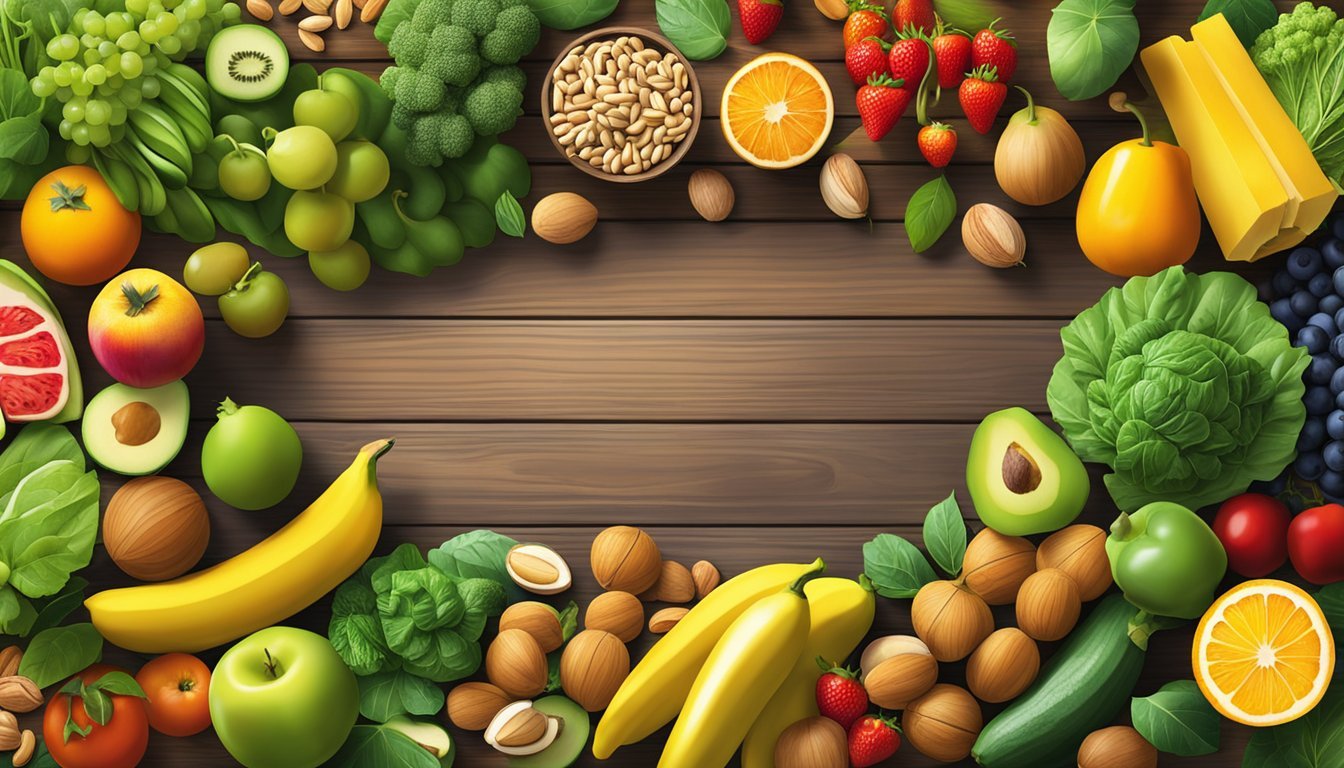The Best Paleo Diet Foods for Boosting Immunity
Essential Nutrients and Choices
The Paleo diet, often characterized by the consumption of foods that might have been available to our ancestors, aligns closely with the principles of eating whole, unprocessed foods. This dietary practice emphasizes the importance of food quality and nutrient density, both of which are crucial for supporting a healthy immune system. By focusing on a variety of meats, vegetables, nuts, and seeds, the Paleo diet provides essential vitamins, minerals, and antioxidants that play pivotal roles in maintaining the body's defense mechanisms against pathogens.
One of the core tenets of the Paleo lifestyle is the elimination of processed foods and those that may trigger inflammation, a factor that is closely linked to immune health. Chronic inflammation can compromise immunity, making the body more susceptible to infection. By incorporating anti-inflammatory foods like leafy greens, rich in vitamins C and E, and garlic, known for its immune-boosting compounds, the Paleo diet can help in modulating the body's inflammatory response.
Moreover, the diet's focus on gut health through the consumption of fermented foods (What wine goes well with fermented foods?) and bone broths is integral to fostering a robust immune system. A well-functioning gut not only aids in the absorption of essential nutrients that bolster immunity but also serves as a barrier against external pathogens. Consequently, adherence to Paleo dietary principles may offer a valuable approach to enhancing the body's immune capabilities.
Paleo Diet Fundamentals
The Paleo diet is focused on consuming whole, unprocessed foods, mirroring the dietary patterns of our pre-agricultural ancestors. This section explores the core components of the Paleo diet, their immune-boosting potential, and how to effectively incorporate them into your meals.
Understanding Paleo Principles
The Paleo diet emphasizes eating foods that would have been available to Paleolithic humans. This includes meat, fish, fruits, vegetables, nuts, and seeds. The idea is that modern humans' physiology is best adapted to this type of diet, which excludes grains, dairy, legumes, and processed foods. By adhering to this dietary pattern, individuals may reduce inflammation and promote overall health.
Benefits of Paleo for Immunity
Adopting a Paleo diet can enhance the immune system through nutrients found in unprocessed foods. These foods are typically high in vitamins, minerals, and antioxidants, which are crucial for maintaining a healthy immune response and protecting the body against pathogens. Following Paleo principles often leads to a natural increase in nutrient-dense food consumption, potentially bolstering immunity.
Key Nutrients in Immunity
The Paleo diet provides several key nutrients that are essential for a strong immune system:
Vitamins A, C, D, and E: Found in colorful fruits and vegetables like berries, citrus fruits, and leafy greens.
Minerals like zinc and selenium: Present in meat, seafood, and nuts.
Omega-3 fatty acids: Abundant in fatty fish and flaxseeds.
These nutrients support various immune functions and help maintain the body's defense mechanisms.
Foods to Avoid
A strict Paleo diet excludes certain food groups that are considered to be of agricultural origin or processed:
Grains: Such as wheat, rice, and barley.
Dairy: Including milk, cheese, and yogurt.
Processed Foods: Those high in sugar and artificial additives.
Legumes: Beans, lentils, and peanuts are off-limits due to their content of lectins and phytic acid.
Planning Your Paleo Meals
A well-planned Paleo meal includes a balance of macronutrients and a variety of micronutrient-rich foods. For optimal immunity, it is important to plan meals that:
Include a protein source, such as grass-fed meat or wild-caught fish.
Incorporate a rainbow of vegetables to ensure an ample intake of vitamins and antioxidants.
Add healthful fats from sources like avocados or olive oil.
This balance helps ensure that the body receives the necessary components to support a healthy immune system.
Optimal Foods for Enhanced Immunity
The Paleo diet contributes to immune strength with specific foods that are rich in proteins, healthy fats, and a variety of fruits and vegetables. These foods provide essential nutrients that play a pivotal role in maintaining an effective immune response.
Protein-Rich Foods
Protein is crucial for the repair and regeneration of immune cells. Consuming adequate amounts of high-quality protein supports the body's ability to ward off pathogens.
Meat: Opt for grass-fed meats as they are leaner and contain higher levels of omega-3 fatty acids which are beneficial for immune health.
Chicken: A good source of lean protein, chicken also offers vitamins like B6, which is vital for immune system functioning.
Fish: Oily fish like salmon are rich in omega-3 fatty acids, known for their anti-inflammatory properties.
Eggs: They are packed with essential amino acids required for immune cell function.
Healthy Fats and Omega-3 Sources
Healthy fats, particularly omega-3 fatty acids, are known for their anti-inflammatory effects which are beneficial to the immune system.
Seeds and Nuts: Flaxseeds, chia seeds, and walnuts are excellent plant-based sources of omega-3.
Olive Oil: A core component of the Paleo diet, extra virgin olive oil is associated with anti-inflammatory health benefits.
Fruits and Vegetables
Rich in vitamins, minerals, and antioxidants, fruits and vegetables are fundamentals in supporting the immune system.
Berries: Packed with antioxidants, berries can reduce inflammation and improve immune function.
Citrus Fruits: High in vitamin C, citrus fruits like oranges and lemons help increase the production of white blood cells.
Vegetables: Broccoli and spinach are among the nutrient-dense choices that provide a plethora of immune-supporting vitamins.
Herbs and Spices with Immune Benefits
Herbs and spices not only add flavor but also offer compounds that can enhance immunity.
Turmeric: Contains curcumin, known for its potent anti-inflammatory properties.
Garlic: Has been shown to boost the disease-fighting response of white blood cells.
Ginger: Like garlic, it has immune-modulating effects and can help reduce inflammation.
Importance of Fermented Foods
Fermented foods offer a wealth of benefits, particularly for the immune and digestive systems. They are a cornerstone of the Paleo diet, providing probiotics that are crucial for gut health and aiding the body's defense mechanisms.
Probiotics and Gut Health
Probiotics are beneficial bacteria that have significant effects on the body's digestive system. The presence of these microorganisms in fermented foods, such as kimchi and sauerkraut, help balance gut bacteria, which is essential for a robust immune system. A healthy gut flora not only aids digestion but also contributes to the body's ability to fend off infections. Consuming fermented vegetables introduces these probiotics into the gut, potentially improving mental health conditions like depression and anxiety by following gut-brain axis pathways.
Key Probiotic Benefits:
Enhances gut microbiome diversity
Lowers inflammation markers
Improves barrier against pathogens
Incorporating Fermented Foods in Paleo
To reap the benefits of fermented foods within a Paleo diet, one should focus on integrating a variety of these nutrient-dense foods. This includes fermented vegetables like kimchi and sauerkraut. These are not only aligned with Paleo guidelines but also provide essential nutrients such as vitamin K2 and B vitamins.
Examples of Fermented Foods for Paleo:
Vegetables: Cabbage, carrots, kale, collards
Seasonings: Ginger and garlic
Dairy Alternatives: Kefir (for those who include it in their diet)
Beverages: Kombucha
Note: When incorporating fermented foods into the diet, it is important to do so gradually to allow the digestive system to adjust.
Supporting Immunity Through Lifestyle
A strong immune system is integral to overall health, and lifestyle choices play a crucial role in bolstering immune defenses. Good quality sleep, regular physical activity, proper hydration, and effective stress management are key components that support immune function.
The Role of Exercise and Rest
Regular physical activity can enhance immune function by promoting good circulation, which allows the cells and substances of the immune system to move through the body more effectively. Adults should aim for at least 150 minutes of moderate-intensity exercise per week. However, they should not overlook the need for rest. Adequate sleep is essential for the immune system to repair and rebuild; adults require 7-9 hours of sleep per night.
Exercise: At least 150 minutes per week
Sleep: 7-9 hours per night
Hydration and Immune Support
Water plays a fundamental role in supporting the immune system. Hydration allows the body to produce lymph, which carries white blood cells and other immune system cells. Ideally, one should drink 8-10 glasses of water per day. In addition to water, herbal teas can be a beneficial source of hydration and also contain compounds that may support immune health.
Daily Water Intake: 8-10 glasses
Herbal Teas: Beneficial for additional hydration
Managing Stress for a Stronger Immune System
Chronic stress can weaken the immune system and reduce its ability to fight off antigens. It is vital for individuals to find effective stress-management techniques that work for them. Tactics such as mindfulness, meditation, deep breathing exercises, and ensuring leisure and relaxation are incorporated into daily life can help mitigate the impact of stress on overall health.
Stress-Reduction Techniques: Mindfulness, meditation, deep-breathing
Relaxation: Essential for reducing stress impacts
Supplementary Practices for Immunity
Supplementing a Paleo diet with beneficial practices can further enhance the immune system. Specific nutrients and traditional preparations like bone broth can provide targeted support.
Bone Broth for Healing
Bone broth, a Paleo staple, is rich in nutrients that aid immune function. It is one of the few sources of collagen, which forms the structural component of connective tissues. It also contains amino acids such as arginine, glycine, and proline, which are essential for a healthy immune response. Minerals like zinc and iron found in bone broth play crucial roles in immune cell development and function. To incorporate bone broth effectively:
Consume regularly: Aim for a serving of bone broth 2-3 times per week.
Homemade is ideal: Store-bought versions often contain added preservatives or lack the nutrient density of a homemade broth.
Utilizing Vitamin Supplements Wisely
While a Paleo diet provides many immune-boosting nutrients, certain vitamins and minerals might still need supplementation, particularly where dietary intake is insufficient. These key supplements include:
Vitamin C: Vital for skin and mucosal barrier function as well as immune cell support.
Vitamin D: Important for modulating immune responses; often sourced from sunlight but may require supplementation in less sunny climates.
Zinc: Essential mineral for multiple immune mechanisms and functions.
Iron: Integral for the growth and differentiation of immune cells.
When using supplements, they should remember to:
Seek high-quality sources: Choose supplements tested for purity and without unnecessary fillers.
Consult healthcare providers: Before starting any new supplement regimen, verify appropriate dosages and necessity with a professional.
By combining these supplementary practices with a nutritious Paleo diet, individuals can promote a stronger and more responsive immune system.





